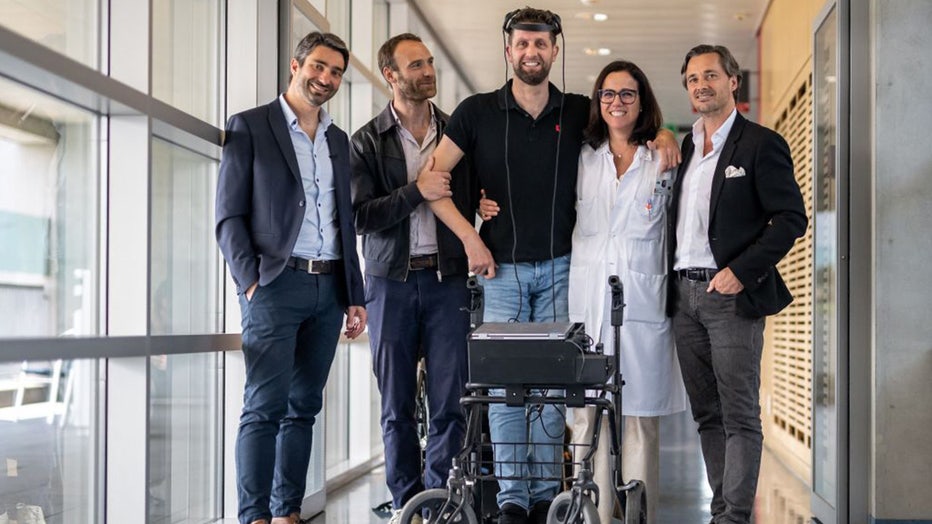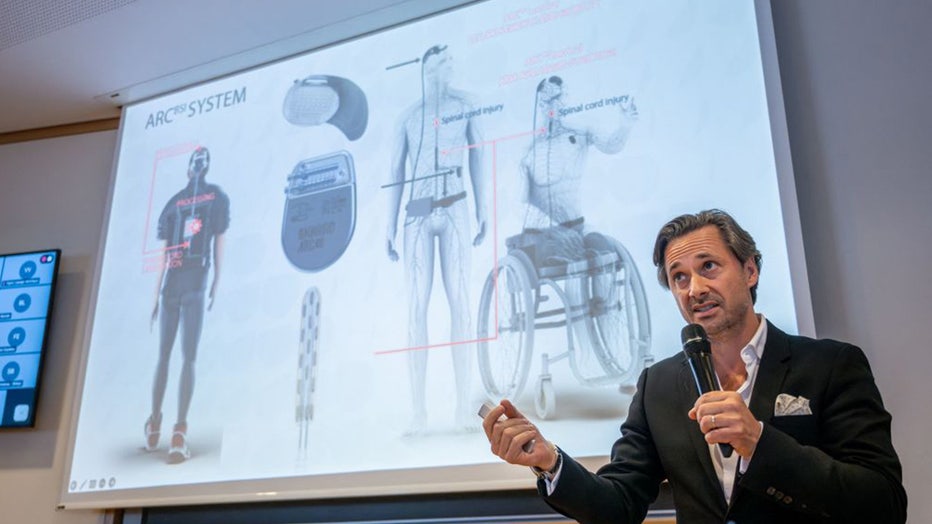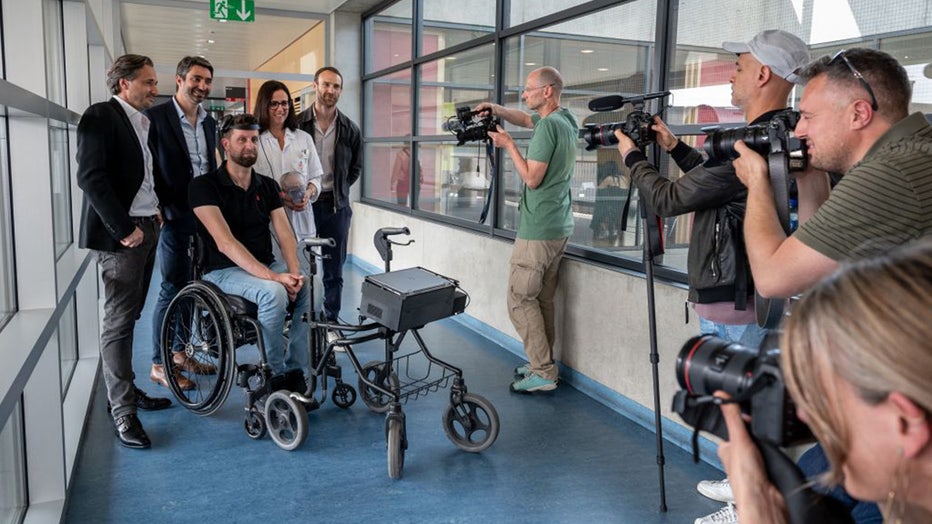Paralyzed man regains this 'simple pleasure' thanks to AI 'digital bridge'
Paralyzed man walks again with thought-controlled brain, spine implants
Innovative technology permitted a paralyzed Swiss man to walk again, thanks to a brain-computer interface that enables thought-controlled walking, scientists with the Swiss Federal Institute of Technology Lausanne (EPFL) said on May 24. (Credit: EPFL/Jimmy Ravier via Storyful)
A paralyzed man has regained the ability to walk thanks to artificial intelligence-powered implants that re-established communication between the brain and spinal cord, researchers said.
"Now I can just do what I want – when I decide to make a step the stimulation will kick in as soon as I think about it," Gert-Jan Oskam said, adding that he now has "freedom that I did not have" and that between the surgeries and therapy, it has been "a long journey to get here."
Oskam, a 40-year-old Dutchman, was left paralyzed following a cycling accident 12 years ago. He lost full use of his legs and partial use of his arms due to damage to the spinal cord in his neck.
The device that has allowed him to walk is the result of a decade of research, building on the work of French neuroscientist Grégoire Courtine. The research, combined with cutting-edge technology and intensive training, can stimulate the lower spine and help someone with a spinal cord injury walk again, according to the science journal Nature.
DEEPFAKE AI TECH COULD ASSIST AND EMPOWER ONLINE PREDATORS, SAFETY EXPERT WARNS

FILE - (From L) Head of the Brain-Computer Interface Program at the CEA, Guillaume Charvet from France, head of the Brain-Computer Interface Program at the Swiss Federal Institute of Technology in Lausanne (EPFL), Lausanne University Hospital (CHUV) (FABRICE COFFRINI/AFP via Getty Images)
The final jump that brought the whole project together, designed by France's Atomic Energy Commission (CEA), involved a new brain-computer interface, which doctors can implant into the brain and at the base of the spinal column to create a "digital bridge."
The interface uses AI-powered algorithms to decode brain recordings in real-time and allow the computer to determine how the patient wants to move their legs, according to France 24.
AI COULD GROW SO POWERFUL IT REPLACES EXPERIENCED PROFESSIONALS WITHIN 10 YEARS, SAM ALTMAN WARNS

file - Professor of neuroscience at the Swiss Federal Institute of Technology in Lausanne (EPFL) Lausanne University Hospital (CHUV) and Lausanne University (UNIL), Gregoire Courtine from Switzerland, speaks during a press conference in Lausanne on M (FABRICE COFFRINI/AFP via Getty Images)
The double surgeries have now allowed Oskam to walk and resume activities he once thought impossible for a man in his condition.
"This simple pleasure represents a significant change in my life," Oskam said.

FILE - For the first time after more than a decade of work by researchers in France and Switzerland, a paralysed man has regained the ability to walk naturally using only his thoughts thanks to two implants that restored communication between his bra (FABRICE COFFRINI/AFP via Getty Images)
Courtine said that what the CEA accomplished is "radically different" from what he was able to do, saying that previous patients required significant effort, while now "one just needs to think about walking to take a step."
Guillaume Charvet, a researcher at CEA, told the AFP that after six months of training, Oskam was seemingly able to regain some sensory perception and motor skills he had lost, even being able to walk with crutches when the tech was turned off.
CLICK HERE TO GET THE FOX NEWS APP
Such a development would suggest that the tech could "promote a reorganization of the neuronal networks" at the site of the injury, but that understanding the full extent of the technology’s impact will require "many more years of research."
Storyful contributed to this report.

